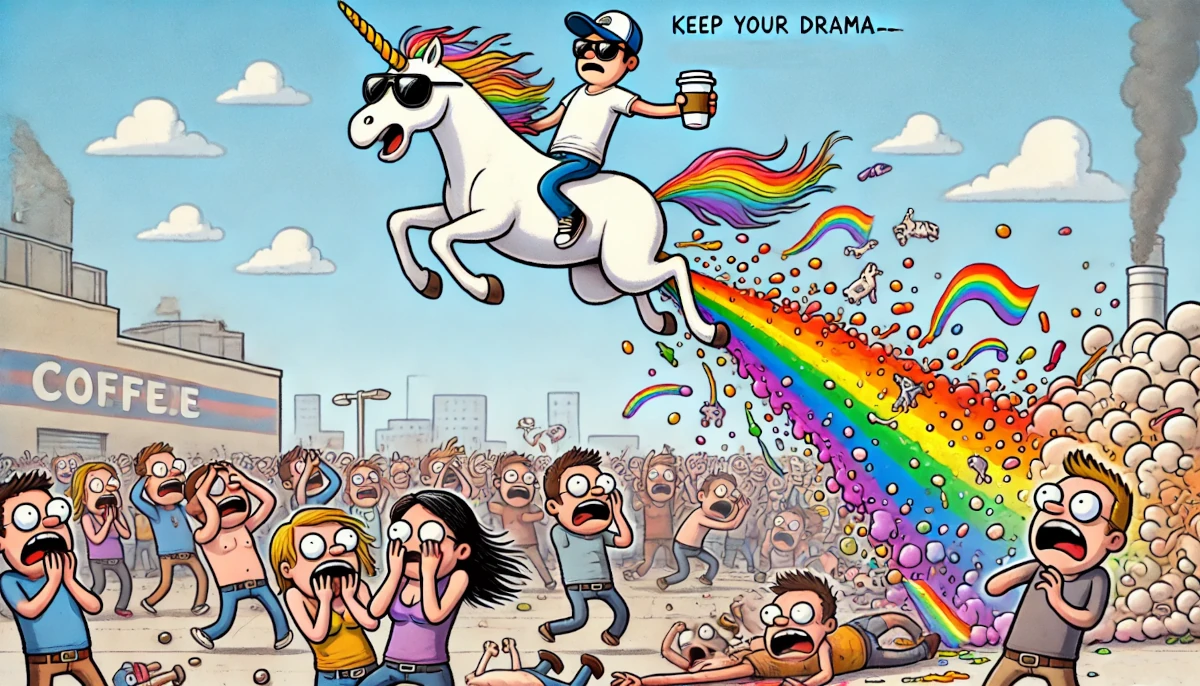Let’s be honest, most self-help books are full of sunshine and rainbows, promising an easy path to a perfect life. Mark Manson’s The Subtle Art of Not Giving a F*ck isn’t one of them. This book is a wake-up call for anyone who’s tired of trying to be “positive” all the time—particularly millennials and young professionals struggling with anxiety, perfectionism, and the pressure to be exceptional. Through raw, refreshing honesty and profanity-laced humor, Manson offers a counterintuitive approach to living a good life: stop trying to be positive all the time and instead get comfortable with life’s inevitable difficulties.
Key Concepts
The Currency of F*cks
Manson argues that we have limited emotional energy to expend, making our “f*cks” a form of currency we must budget wisely. He emphasizes that the art isn’t about being indifferent, but rather about being selective. Through examples like his friend’s successful business focusing only on clients he genuinely wants to help, Manson demonstrates how caring deeply about fewer things leads to better outcomes than caring superficially about everything.
The Backwards Law
Manson introduces Alan Watts’s “backwards law”: the more you pursue feeling better all the time, the less satisfied you become. He illustrates this through the story of Dave Mustaine, who was kicked out of Metallica before they became famous. Despite later forming Megadeth and selling over 25 million albums worldwide, Mustaine considered himself a failure because he constantly compared himself to Metallica’s greater success. This demonstrates how the pursuit of success and happiness can actually make us more miserable.
The Feedback Loop from Hell
Manson introduces the concept of the “Feedback Loop from Hell” through his personal experience with panic attacks in his early twenties. He would be in a nightclub, start feeling anxious, then get anxious about feeling anxious, then get anxious about being anxious about being anxious. This self-perpetuating cycle of negative emotions is what he terms the Feedback Loop from Hell. The breakthrough came when he simply accepted these feelings: “I’m anxious about going to the nightclub. Who cares? I’m still going to go.” This acceptance paradoxically freed him from the cycle of meta-anxiety.

The Value of Pain
Manson challenges the modern obsession with positivity by sharing the story of Pete Best, the original Beatles drummer who was replaced by Ringo Starr. Unlike Mustaine, Best eventually found peace by valuing his quiet family life over fame. Through this contrast, Manson shows how happiness comes from solving problems, not avoiding them. He points out that people who embrace challenges—like entrepreneurs who work 80-hour weeks or athletes who push through intense training—often lead more meaningful lives than those who avoid discomfort.
Responsibility vs. Fault
One of Manson’s most powerful messages is about taking radical responsibility for our lives. He distinguishes between fault and responsibility: while we’re not always at fault for what happens to us, we’re always responsible for how we interpret and respond to events. He illustrates this through the story of William James, who took complete responsibility for his depression and committed to a year of believing in his ability to change his life - ultimately transforming his situation through this mindset.
The Self-Awareness Onion
Manson describes self-awareness as an onion with three layers:
- Simple understanding of one’s emotions
- Questioning why we feel certain emotions
- Personal values and how they shape our emotions
He illustrates this through his own journey from being a pick-up artist focused on superficial relationships to discovering that what he really valued was genuine connection. This realization helped him develop healthier relationships and eventually led to his marriage.
The Do Something Principle
Instead of waiting for inspiration or motivation, Manson advocates taking action first. He shares how he overcame writer’s block by forcing himself to write for just ten minutes each morning, regardless of quality. This small action often turned into hours of productive work, demonstrating his principle that action creates motivation, not the other way around.
Conclusion
The Subtle Art of Not Giving a F*ck offers a refreshing alternative to traditional self-help by embracing life’s challenges rather than avoiding them. Through personal stories and practical philosophy, Manson shows that true happiness comes not from positivity but from finding the right problems to solve. The book’s message is particularly relevant in today’s achievement-obsessed culture, offering a more sustainable approach to living a meaningful life.
Did you find this content helpful?
While we strive to provide comprehensive summaries, they cannot capture every nuance and insight from the full book. For the complete experience and to support the author's work, we encourage you to read the full book.
Note: You'll be redirected to Amazon.com. We may earn a commission from purchases made through affiliate links on this page.
Recommended Books
If you enjoyed The Subtle Art of Not Giving a F*ck, here are similar books that explore personal growth and mental resilience:
-
"Atomic Habits" by James Clear
Provides practical strategies for behavior change, complementing Manson’s philosophy with actionable steps for implementing life changes. -
"Digital Minimalism" by Cal Newport
Explores how to be more intentional with our attention and energy, building on Manson’s concept of choosing what to care about. - “The Mountain Is You” by Brianna Wiest
Delves deeper into self-sabotage and emotional intelligence, expanding on Manson’s ideas about self-awareness and personal responsibility.
For readers interested in broader perspectives that complement these themes:
-
"Thinking, Fast and Slow" by Daniel Kahneman
This exploration of human decision-making helps readers understand why we often care about the wrong things, offering scientific insight into many of the behavioral patterns Manson describes. -
"Man's Search for Meaning" by Viktor E. Frankl
Through Frankl’s experiences in Nazi concentration camps, this powerful memoir demonstrates how finding meaning can help us endure any hardship, perfectly aligning with Manson’s philosophy about choosing what to care about.